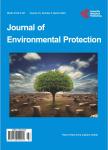Valuing Water Resources in Turkey: A Case Study of Beyşehir Lake
Valuing Water Resources in Turkey: A Case Study of Beyşehir Lake作者机构:The World Bank Washington DC USA The World Bank Ankara Turkey
出 版 物:《Journal of Environmental Protection》 (环境保护(英文))
年 卷 期:2016年第7卷第12期
页 面:1904-1922页
学科分类:0502[文学-外国语言文学] 050201[文学-英语语言文学] 05[文学]
主 题:Water Valuation Total Economic Value Beyşehir Lake
摘 要:Water resource management is critical to Turkey’s economy and environment. The country has about 112 billion m3 per year of economically exploitable water. However, population growth, climate change and pollution of water bodies are putting increasing pressure on these resources. In this context, understanding the contribution of water to the economy and environment is crucial for its conservation. To meet this need, the World Bank launched a program aiming at improving valuation and accounting systems of natural resources in Turkey. As part of this program, this article estimates in monetary terms the economic value of water in Bey?ehir Lake, the largest freshwater lake in Turkey. Valuation is based on the Total Economic Value concept, which includes use and non-use values. The results show that the economic value of water is about seven times higher than its financial value. In addition, the economic value of water allocated for municipal use (TL5/m3) is substantially greater than that supplied for irrigation (TL0.5/m3). The analysis suggests that allocation of water from Bey?ehir Lake among different uses is inefficient. To validate this conclusion and improve allocation, a more comprehensive assessment of the economic benefits of water resources is needed, particularly of water supply for irrigation, municipal use, recreation and biodiversity. The analysis also indicates that economic valuation can be a powerful tool to improve water management at the river basin level.



